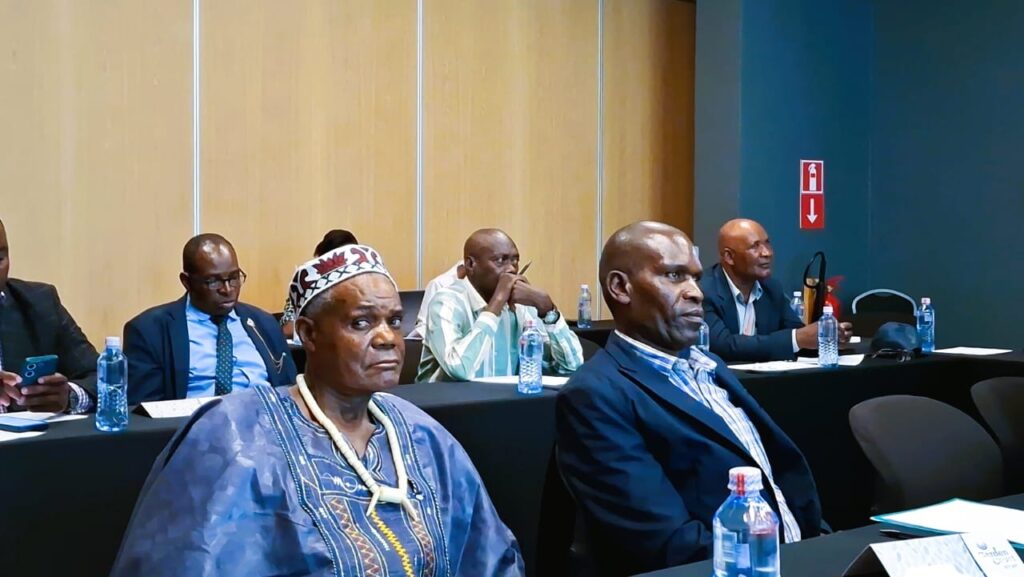A European Union (EU) funded project implemented by a consortium of three Non-Governmental Organizations (NGOs) has engaged Chiefs on the Copperbelt for dialogue over land.
The project, dubbed Strengthening the Respect for Environmental Rights in Zambia (SR4ER), is being implemented by HIVOS, Centre for Environment Justice (CEJ), and Zambia Institute of Environmental Management (ZIEM).
Set to conclude in January 2027, the project, aims to empower rights holders through targeted training programmes.
Speaking during the official opening of the dialogue, CEJ’s Monitoring and Evaluation Specialist, Haggai Nyambe, highlighted the importance of collaboration with traditional leaders, acknowledging their critical role in national development.
Mr. Nyambe explained that He said there is hope that the project will be extended beyond January to continue its impact.
He noted that about 95% of land in Zambia remains under the control of royal Highnesses, making the engagement with Chiefs essential for sustainable development and land governance.
“The consortium specifically focuses on working with traditional leaders, given their substantial influence over land and development issues,” Mr. Nyambe stated.
Mr. Nyambe added that CEJ has prioritized engaging leaders through discussions and workshops that address environmental rights and development concerns, and expressed gratitude for the willingness of the Chiefs to participate.
“The consortium regularly involves traditional authorities in activities related to environmental compliance and governance, recognizing them as a vital institution in Zambia’s development framework,” he added.
Meanwhile, CEJ Environmental Protection Dialogue (EPD) Coordinator Patricia Nangoyi, emphasized that land is a critical resource for Zambia’s economic development and a key asset across various sectors.
Ms. Nangoyi noted growing interest in land-based investments across agriculture, mining, forestry, and tourism, driven by Zambia’s abundant land resources.
“Agriculture, which employs about 70% of the population, remains central to food security and economic growth. Land-based investments contribute to job creation, income generation, infrastructure development, and export potential,” Ms. Nangoyi highlighted.
She, however, acknowledged challenges such as insecure land rights, displacement of communities, and environmental degradation linked to mining and other projects.
Ms. Nangoyi stressed the need to balance investment with environmental protection and to address social conflicts over land ownership and boundaries, urging stakeholders to promote transparency and fairness in land allocation to support sustainable development and social cohesion.



